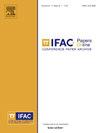A Dynamic Prioritization Algorithm For Digital Concept Mapping Games⁎
Q3 Engineering
引用次数: 0
Abstract
We consider the problem of optimizing the time-aspect of the user experience of learners that use digital mapping games for enhancing their metacognition levels about some specific material. More precisely, we assume that students shall perform mapping tasks using an IT tool that asks users to visually organize some specific logical relations among course topics. The goal of the learners is to ideally reconstruct a map that their teacher built beforehand as a reference one. To do so, they interact with a graphical user interface that displays a subset of topics within the course, and asks them to establish connections between such topics. While doing so, the tool collects quantitative information about their understanding of the logical organization of the course content.
The paper focuses then on presenting a prioritization algorithm that dynamically selects which concepts are displayed to the users as they are playing the game. The algorithm tries to make students perform maximally informative tasks, and assigns priority scores to each concept by integrating hierarchical factors (such as node depth, number of child nodes, and a leaf factor) with weights that capture the significance of different types of relationships (e.g., necessary, important, useful). These scores are iteratively updated based on the input of the user, ensuring that the most relevant and informative topics are presented throughout the session. Field tests with engineering students demonstrate that the mapping game not only aids in visualizing complex interrelationships among concepts but also promotes active metacognitive engagement. The prioritization algorithm, with its modular and scalable design, effectively supports real-time adaptation to student feedback and the evolving structure of the reference map. This integrated framework thus offers a promising tool for both enhancing learning outcomes and providing educators with quantitative insights into students’ conceptual understanding. We thus also show that the dual objectives of the mapping game and its underpinning prioritization algorithm achieve a synergistic approach useful to interactive learning, and improve traditional study methods with a dynamic educational experience.
数字概念映射游戏的动态优先排序算法
我们考虑优化学习者使用数字地图游戏的用户体验的时间方面的问题,以提高他们对某些特定材料的元认知水平。更准确地说,我们假设学生将使用IT工具执行映射任务,该工具要求用户可视化地组织课程主题之间的一些特定逻辑关系。学习者的目标是理想地重建他们的老师事先建立的地图作为参考。为此,它们与图形用户界面交互,该界面显示课程中的主题子集,并要求它们在这些主题之间建立连接。在此过程中,该工具收集有关学生对课程内容的逻辑组织的理解的定量信息。然后,本文重点介绍了一种优先排序算法,该算法可以动态地选择在用户玩游戏时向他们展示哪些概念。该算法试图让学生执行信息量最大的任务,并通过将分层因素(如节点深度、子节点数量和叶因子)与捕获不同类型关系(如必要、重要、有用)的重要性的权重相结合,为每个概念分配优先级分数。这些分数根据用户的输入进行迭代更新,确保在整个会话中呈现最相关和最翔实的主题。对工科学生的实地测试表明,地图游戏不仅有助于可视化概念之间复杂的相互关系,而且还促进积极的元认知参与。优先排序算法,其模块化和可扩展的设计,有效地支持实时适应学生的反馈和参考地图的不断发展的结构。因此,这一综合框架提供了一个有前途的工具,既可以提高学习成果,又可以为教育工作者提供对学生概念理解的定量见解。因此,我们还表明,地图游戏的双重目标及其基础优先排序算法实现了一种对交互式学习有用的协同方法,并通过动态教育体验改进了传统的学习方法。
本文章由计算机程序翻译,如有差异,请以英文原文为准。
求助全文
约1分钟内获得全文
求助全文
来源期刊

IFAC-PapersOnLine
Engineering-Control and Systems Engineering
CiteScore
1.70
自引率
0.00%
发文量
1122
期刊介绍:
All papers from IFAC meetings are published, in partnership with Elsevier, the IFAC Publisher, in theIFAC-PapersOnLine proceedings series hosted at the ScienceDirect web service. This series includes papers previously published in the IFAC website.The main features of the IFAC-PapersOnLine series are: -Online archive including papers from IFAC Symposia, Congresses, Conferences, and most Workshops. -All papers accepted at the meeting are published in PDF format - searchable and citable. -All papers published on the web site can be cited using the IFAC PapersOnLine ISSN and the individual paper DOI (Digital Object Identifier). The site is Open Access in nature - no charge is made to individuals for reading or downloading. Copyright of all papers belongs to IFAC and must be referenced if derivative journal papers are produced from the conference papers. All papers published in IFAC-PapersOnLine have undergone a peer review selection process according to the IFAC rules.
 求助内容:
求助内容: 应助结果提醒方式:
应助结果提醒方式:


